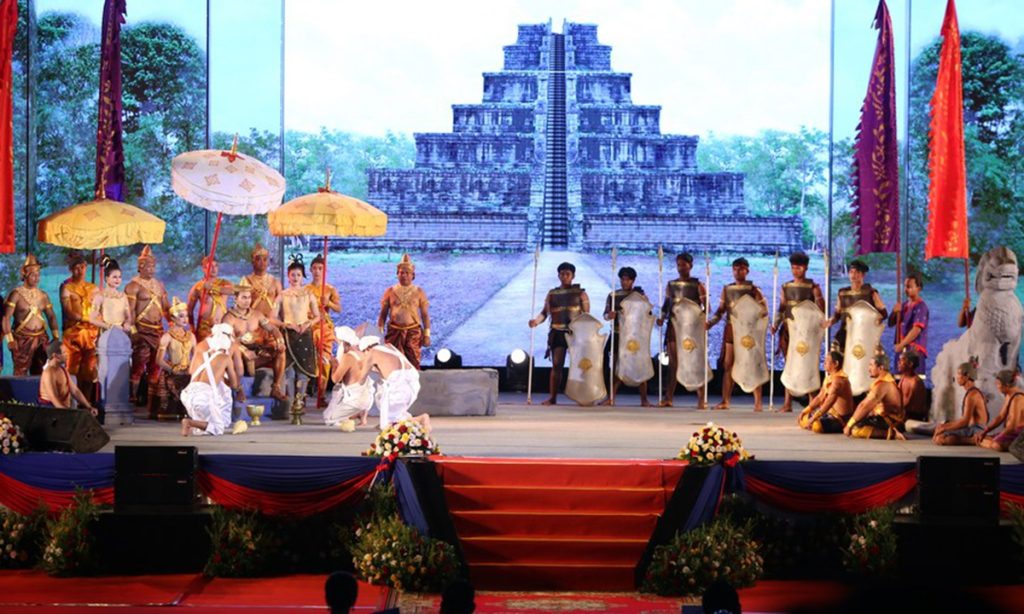Cambodians celebrate listing of Koh Ker as UNESCO world heritage site

Thousands of Cambodians on Wednesday evening celebrated the inscription of the country's Koh Ker archaeological site on the United Nations Educational, Scientific and Cultural Organization (UNESCO)'s World Heritage List.
Built in the 10th century by Jayavarman IV, the Koh Ker archaeological site was listed as a world heritage site during the 45th session of the World Heritage Committee in Riyadh, Saudi Arabia, on Sunday.
It became Cambodia's fourth tangible cultural property that has been inscribed on the World Heritage List. "This archaeological marvel offers a profound insight into its era's well-organized projects of regional, social, economic, and architectural development, town planning, and rural infrastructure," the UN cultural agency said.
Speaking to the revelers at the event held at the Olympic Stadium in Phnom Penh, Cambodian Prime Minister Hun Manet said it was a new historic event for Cambodia in safeguarding, preserving and developing cultural properties.
Koh Ker had suffered widespread looting during civil conflicts between the 1960s and 1990s, and the Cambodian government has since sought to repatriate stolen antiquities exhibited or sold on the international market.
"As a Cambodian citizen, I'm thrilled to hear that the Koh Ker temple has been included in the world heritage list," Em Sreysros, a 55-year-old reveler, told Xinhua.
She said the inscription truly reflected the government's strong efforts to protect and conserve the country's cultural heritage sites.
"I would like to urge international tourists and overseas Cambodians to come and visit Cambodia, and please come to see our ancient Koh Ker temple," Sreysros said.
Located in Preah Vihear province's Kulen district, roughly 370 km northwest of the capital Phnom Penh, Koh Ker was the capital of the Khmer Empire for a brief period between 928-941 C.E., according to UNESCO.
The 87.8-square-km ancient site boasts several archaeological remains, including unique-in-style temples, sculptures, inscriptions, wall paintings, and impressive Shiva-lingas sanctuaries, as well as civil structures, ponds, dykes, reservoirs, and ancient roads that reflect the influence and grandeur of the Khmer Empire.
To date, four tangible cultural properties in the Southeast Asian country have been placed on the world heritage list. The first three listed properties are the Angkor Archaeological Park inscribed in 1992, the Temple of Preah Vihear in 2008, and the Temple Zone of Sambor Prei Kuk in 2017.